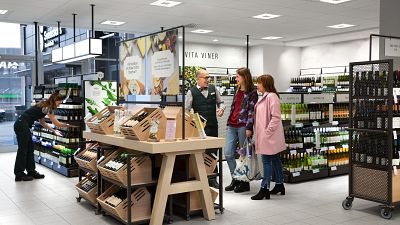BERLIN - German manufacturers struggled to meet strong demand for industrial goods in August as supply shortages for raw materials and components such as semiconductors continued to hold back production and push up prices, a survey showed on Wednesday.
IHS Markit's final Purchasing Managers' Index (PMI) for manufacturing, which accounts for about a fifth of Europe's biggest economy, fell to 62.6 from 65.9 in July.
That was the lowest in six months but still comfortably above the 50 mark that separates growth from contraction.
The German economy rebounded in the second quarter with a growth rate of 1.6% compared to the previous three months as an easing of COVID-19 curbs spurred consumers to dip into record savings piled up during the winter lockdown.
The government expects the economy to grow 3.5% this year and 3.6% next, though supply bottlenecks and rising COVID-19 cases are leading companies to take a dimmer view.
Corporate efforts to increase industrial production in light of vibrant demand were often hampered by supply shortages for basic materials and intermediate products, the survey showed.
"Growth in output has now fallen behind that of new orders to an extent previously unseen in over 25 years of data collection," IHS Markit economist Phil Smith said.
The supply bottlenecks led to rising backlogs of work, falling stock levels and acute price pressures across Germany's large manufacturing sector. Among the items most often reported by survey participants as having risen in price were aluminium, electronics, plastic, steel and timber.
The supply problems and related price pressures also clouded the outlook in manufacturing, with the sub-index on firms' optimism about future activity falling to its lowest level since last October, the survey showed.
"Still, many goods producers are hopeful that conditions will have improved come next summer, and a further steep rise in employment levels shows that efforts are still being made to expand capacity and prepare for higher output in the future," Smith said.



